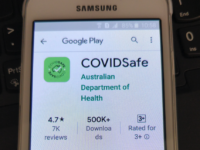
The state of Internet access in Canada has been the subject of considerable debate in recent years as consumers and businesses alike assess whether Canada has kept pace with the need for universal access to fast, affordable broadband. What is now beyond debate is that there are still hundreds of thousands of Canadians without access to broadband services from local providers and that for those that have access, actual speeds may be lower than advertised and below the targets set by the CRTC, Canada’s broadcast and telecommunications regulator.
CIRA, the Canadian Internet Registration Authority, manages the dot-ca domain and has played an increasingly important role on Internet policy matters. CIRA recently submitted a report on the urban-rural broadband divide as part of a CRTC process on potential barriers to broadband in underserved areas. Josh Tabish from CIRA joins me this week on the podcast to discuss the IPT, the CRTC submission, and the future of universal access to broadband in Canada.
Read more ›

The Federal Court of Appeal delivered its long-awaited copyright ruling in the York University v. Access Copyright case last month. This latest decision effectively confirms that educational institutions can opt-out of the Access Copyright licence since it is not mandatory and that any claims of infringement will be left to copyright owners to address, not Access Copyright. The decision is a big win for York University and the education community though they were not left completely happy with the outcome given the court’s fair dealing analysis.
The decision also represents a major validation for University of Toronto law professor Ariel Katz, whose research and publications, which made the convincing case that a ‘mandatory tariff’ lacks any basis in law”, was directly acknowledged by the court and played a huge role in its analysis. Professor Katz joins me on the podcast this week to talk about the case, the role of collective licensing in copyright law, and what might come next for a case that may force Access Copyright to rethink the value proposition of its licence.
Read more ›

As governments grapple with challenging questions about when and how to relax the current Coronavirus restrictions and give the green light to re-opening businesses, schools, and community spaces, there has been increasing emphasis on the potential for technology to assist with critical activities such as contact tracing. Canada has moved more cautiously on this issue, but the introduction of contact tracing apps seem likely. What will the apps look like and what legal framework is needed to safeguard a myriad of privacy and civil liberties concerns?
Lilian Edwards is a law professor at Newcastle University where she is the Professor of Law, Innovation and Society. She has been leading a fascinating project that seeks to address the legal concerns that might arise from contact tracing apps with a model bill that could be used to establish safeguards and other legal limits. She joined me on the podcast to talk about the latest developments on contact tracing apps, the growing schism between countries, and the legal rules that could address some of the public concerns.
Read more ›
Fair dealing – the Canadian version of fair use – has been recognized by the Supreme Court of Canada as a users’ right. The need for a large and liberal interpretation to the right is a cornerstone of Canadian copyright law. With millions of Canadian students at home due to the Coronavirus pandemic, the importance of fair dealing has grown as teachers seek to provide access to teaching materials and ensure they remain compliant with the law. Sam Trosow and Lisa Macklem of Western University recently published a detailed analysis on fair dealing and emergency remote teaching in Canada. They joined me on the podcast to discuss fair dealing, its application during the current pandemic, and recent developments involving reading aloud programs as well as the Federal Court of Appeal decision in York University v. Access Copyright.
Read more ›

Communities around the world raced to respond to the coronavirus pandemic last month by shutting down as businesses, schools, and libraries were rendered unavailable seemingly in an instant. One of the effects of the shutdown was that hundreds of millions of books were immediately made inaccessible to students, teachers, and the wider community. The Internet Archive responded with the National Emergency Library, a tweaked version of its Controlled Digital Lending program that brings scanned versions of millions of lawfully acquired books to readers under strict controls.
I’ve been a longstanding board member of Internet Archive Canada and was pleased to be joined on the podcast by Brewster Kahle (founder of Internet Archive), Chris Freeland (Director of Open Libraries at Internet Archive), and Kyle Courtney (lawyer, librarian and the copyright advisor at Harvard University) to talk about the Internet Archive, controlled digital lending, the National Emergency Library, and the copyright implications of recent developments.
Read more ›











